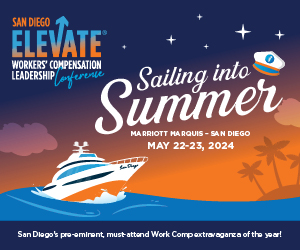JCC Can Deny Fee Petition that 'Shocks Judicial Conscience'
Wednesday, February 3, 2010 | 0
By Michael Rabinowitz
During the Christmas holiday week, I missed an attorney fee ruling where the Florida 1st District Court of Appeal handed down harsh language regarding “excessive and unconscionable” claimant attorney fees. In particular, the concurring opinion of Chief Judge Paul M. Hawkes hammers the point that attorney fee hearings have become little more than a “ritual of hours and rates that transcends the statutory scheme.”
What Chief Judge Hawkes does is point out the obvious: a JCC is not merely a calculator of fees. The position is one of a legal analyst and arbiter of what is rational and reasonable.
In Jackson v. Ryan’s Family Steakhouse, the claimant lost at final hearing all of her claims except for medical mileage, calculated at $201.44. Her attorney then sought fees associated with procuring the mileage benefit in excess of $6,040. At the fee hearing, the employer/carrier presented no evidence of an alternate fee. It just presented expert testimony that the amount Claimant attorney sought was clearly excessive based on statutory factors. The problem was that the statutory fee on $201.44 would be $40.29, an unreasonably low fee.
The JCC found that the $40.29 was too low, but also found the $6,040.00 fee for seeking just $201.44 in benefits would be unreasonably excessive and – here’s the best part– ”shocked the judicial conscience.”
In a brief opinion the First DCA affirmed the JCC’s decision because the record supported the finding that the claimed fee was clearly excessive and unconscionable. But the real meat of the story is Chief Judge Hawkes’ concurring opinion. While concurring opinions are not binding, they are persuasive, and the majority opinion does agree with the JCC’s “shock the judicial conscience” language.
Hawkes sees the modern fee hearing as one that evolved into a “ritual of hours and rates that transcends statutory scheme and pays no mind to the fundamentals of prejudice, legal ethics, or the essential question at hand: what is a reasonable fee for the services provided?”
Tough language indeed.
Hawkes goes to note the ritualistic focus of hours and rates caused lawyers and judges to lose sight of the goal of chapter 440 – to award reasonable fees expected of a capable attorney under similar circumstances. While a JCC has to rely on evidence to make his fee decisions, the JCC must have authority to deny a fee that is unconscionably excessive, even if the employer/carrier does not argue amount. Hawkes notes the dilemma the JCC faced in this case. He had only two choices: 1) award an unreasonably low fee of $40.29 or 2) award the unconscionably high fee of $6080.00. Hawkes argues for a third option for JCC’s and that is the result of this case.
Hawkes ends with a broad shot at a system “which allows for the award of excessive fess as the product arcane ritual and formalistic rules not only violates the clear intent of the Legislature and the missive of the Supreme Court, but it also threatens the integrity of the legal system itself by eroding the public’s confidence in the bench and bar.”
For employer/carrier’s this is very quotable opinion. Hawkes frustration is palpable and felt equally among employers and carriers. But, also bear in mind that this opinion advocates more judicial power for the JCCs. It argues for more discretion by the JCC in awarding fees; the exact concept the Legislature does not want. Hence, the July 1, 2009 changes to section 440.34 where they removed the word “reasonable”. One could argue this is how a constitutional argument could go down when trying to overturn the 2009 changes.
While this case certainly benefits employer/carrier’s, Claimant attorneys can apply the decision as fodder for future arguments against employer/carrier’s for more judicial discretion in awarding fees. It is a knife that cuts both ways.
WorkCompCentral subscribers may download a copy of the 1st DCA opinion by clicking the case title in the sidebar.
Michael Rabinowitz is a workers' compensation defense attorney for Banker Lopez Gassler, P.A. in Tampa, Fla. This blog was reprinted with his permission from the firm's blog, Workers' Comp Corner, which can be found here: http://workerscompblog.wordpress.com/




Comments